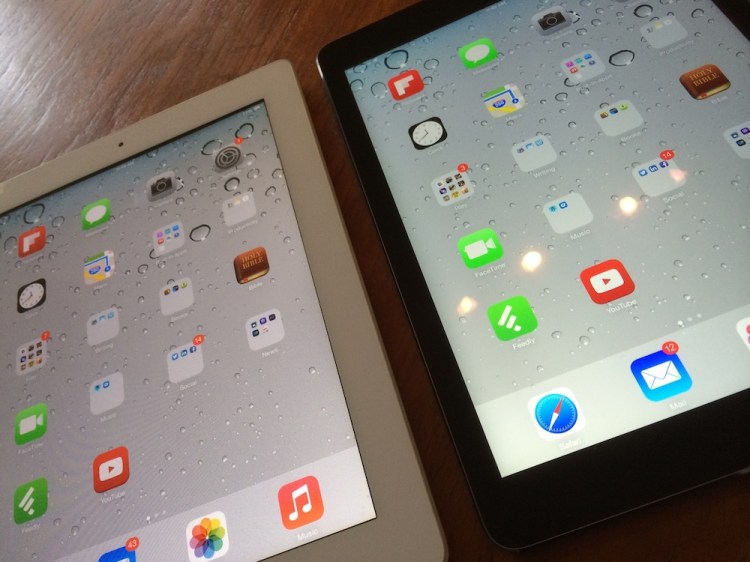Every quarter or so, IDC releases an update on the tablet market that has numbers showing the iPad falling further and further away from first place.
Journalists readily publish it, because it’s simple to understand and it’s easy to get traffic from an article showing that Apple is losing its edge.
The problem is, it just isn’t true. In fact, it’s an absolute fairytale that paints a flawed portrait of the tablet market. Here’s why.
(Disclaimer: In my cross-platform world, the more tablets the better — so it’s in my best interests that more manufacturers sell more tablets. So this isn’t an Apple fanboy piece.)
Shipped doesn’t mean sold
Many reports love to show data on tablets shipped. When it comes to Apple, it reports the number of tablets that are actually sold. Other manufacturers simply report tablets shipped for that quarter. This is an apples to oranges comparison.
The issue is that tablets shipped (to retailers) are often not sold (to customers). Instead, they sit on store shelves. Look at the writedown that Microsoft had to take for its first-generation Surface, to the tune of $900,000,000. This is happening across the board with most tablet manufacturers as they are often shipping tablets, but they are going unsold.
On the other hand, we’re able to see how many devices Apple actually sells in the tablet market every quarter, because it tells us.
Samsung and the others offer zero breakdown of how many tablets they’ve actually sold. Even if Samsung’s “shipped” numbers were correct, we have no apples to apples comparison of how many tablets were actually sold by the company.
Sold doesn’t mean used
If a tablet actually gets sold but nobody uses it, does it still count?
Many of the non-iPad devices being sold are sub-$200 devices. In the Others category, we’re looking at cheap knock-offs that don’t provide a very good experience. These are the type of devices that are given away as stocking stuffers or spur-of-the-moment purchases that people own, but don’t actually use. It’s a lot easier to stop using a cheap device you bought for under $200 than it is a device that starts at $329.
Android tablets also have very few tablet-tailored apps. Apps are a way to give people something to do on a tablet. With the iPad, there are a lot of iPad-specific apps, meaning a lot to do. With Android, few apps means less to do.
The other tablets aren’t online much
Of course, a popular activity on tablets and other devices is browsing the web. But even here, Apple is winning: iPads are trouncing Android tablets in terms of web usage.
We took a sample of one million people using our publishing platform over the past month. In our sample the iPad accounts for 89 percent of tablet traffic compared to the other groups of tablets. Nexus 7 is at 3 percent and the Kindle Fire at a little over 7 percent. These are two of the most marketed and well-known tablets on the market, yet they are one-eighth the size of the iPad in terms of browser usage.
“Other” tablet manufacturers (besides Apple, Samsung, and Amazon) account for 35.3 percent of the tablet market. But that number makes little sense. First off, it’s crazy to believe that a bunch of no-name competitors have more share than Apple or any other major manufacturer. If we do assume that these tablets have the real market share they claim, then web usage would be higher. Why you ask? These tablets are often not Google-sanctioned and do not have the Google Play store installed. With fewer apps to use, you would start to see more web usage from these tablets. Any sane person would realize there’s no way this is true.
Here’s my bottom line: In the smartphone market, Android certainly is shipping and selling a lot of devices. Samsung is a real threat and I see a lot of ordinary folks switching over from Apple to Samsung.
The tablet market? That’s a lot different. The tablet market is the iPad market, just like the digital music player market was the iPod market ten years ago.
Will it change? Time will tell. In the meantime, stop believing the fairytales.
 Jason Baptiste is founder and chief marketing officer of mobile publishing company Onswipe.
Jason Baptiste is founder and chief marketing officer of mobile publishing company Onswipe.
VentureBeat's mission is to be a digital town square for technical decision-makers to gain knowledge about transformative enterprise technology and transact. Learn More

